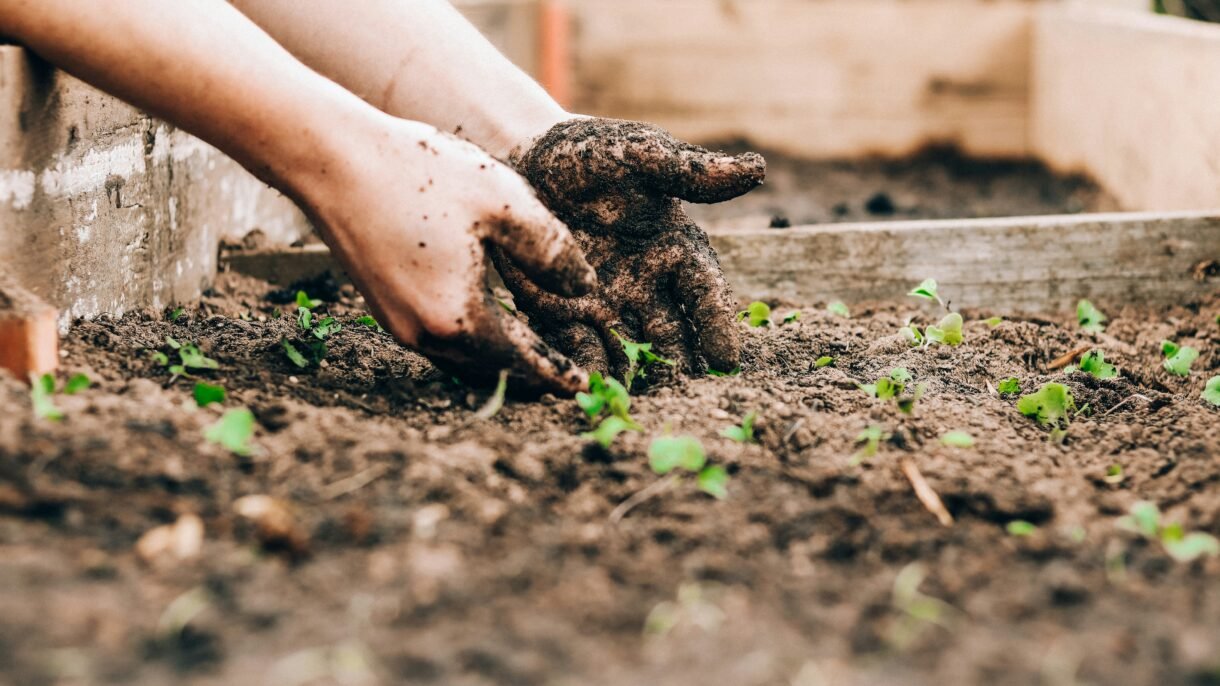How simple gardening taught me a valuable lesson about the necessity of ‘letting go’ in life
– Seminarian Joryll Pales, Tagum City, Davao Del Norte, Philippines.
St. Irenaeus famously wrote, “The glory of God is a man fully alive.” However, there will always be moments in life when we realize that we are not fully alive, making little to no progress in our career, relationships, or spirituality. On a deeper level, we may carry a sense of dissatisfaction with how our life is unfolding, leading to unhappiness and, in some cases, depression. This begs the question: where did things go wrong? When did this downward spiral of personal stagnation begin? What can we do to escape this cycle? Thousands of self-help books, podcasts, and videos are offering valuable insights and guidance on these questions. In my personal experience, I want to share how tending to my small vegetable garden gave me valuable insight to these question. I also want to introduce in this short essay a bisaya word (a dialect spoken in the central and southern Philippines) that perfectly encapsulates the very essence of its concept.
Our tropical country offers year-round crop growth, even in small gardens. One morning, I noticed my alugbati (a type of leaf vegetable also called as malabar spinach) was growing slowly or not at all compared to other vegetables. I thought it might be due to infertile soil or poor sunlight. Nevertheless, I decided to prune it, cutting off old stems and unhealthy leaves. After a while, it looked bald, stripped of its thick stems and leaves, and I feared it might die. The next week, I was amazed! The alugbati stems grew over 10 centimeters long, and new leaves sprouted. Two weeks later, the leaves and stems grew even thicker and wider, allowing me to harvest and cook it. I realized, it was not about infertile soil and poor sunlight at all. The alugbati simply needed pruning.
Pruning, in the English dictionary, means cutting away or reducing by trimming. Plants and vegetables benefit from pruning because it removes unhealthy parts that consume most of their nutrients, hindering growth. Ironically, pruning my alugbati plant taught me a valuable lesson about letting go in life. Just as pruning is necessary for growth, letting go is essential for personal growth and fulfillment. Interestingly, while pondering on these things, there is a word in bisaya that immediately popped in mind which can perfectly describes the interdependence of letting go and living. It is the word ‘buhi’.
The Bisaya word “buhi” carries a profound and paradoxical meaning. The most commonly understood meaning is “life” and “living.” The word “buhi” (pronounced with the first syllable stressed) literally means “alive,” but it can also mean “life” (kinabuhi) or “living” (nabuhi).The second meaning of “buhi” (pronounced with the last syllable stressed) means “let go.” This dual meaning presents a paradox that highlights the wisdom of letting go (buhi) and embracing life (buhi). For instance, the Bisaya sentence “Buhi para mabuhi” literally translates as “Let go in order to live” or “May kinabuhi sa pagbuhi,” which means “there is a life (or growth) in letting go.”
I find it brilliant and clever that in our dialect, these two meanings are intertwined and united within just a single word. In life, letting go of someone or something, whether it’s a relationship, a habit, or attachment to tangible things, is an inevitable and necessary process of the journey. At the same time, when we let go, another form of life or growth often emerges. Living and letting go are mutually exclusive and interdependent, like one is essential for the other. This concept is elegantly expressed when we prefix the word “buhi” with “Mu-,” creating the action word “Mubuhi,” which means both “to let go and to give life.” We can also find a similar teaching of Jesus highlighting those who ‘loses (let go) their lives for God’s kingdom, will save (live) it. (Matt. 16:25)
Some answers and clues to life’s challenging questions can be found in the most unexpected places, like the corners of our front yards. In fact, we may have already known these answers and clues during our childhood. They are remarkably simple and basic yet still remain hidden from our view. Just as the alugbati vegetables, our slow progress may not be due to where we are at the moment (infertile soil) nor the lack of opportunites we received (poor sunlight). Maybe, what we need is pruning, to cut away and let go of things, thougths or habits that unhealthily consumes the time and energy from us, hindering our progress. Only we can identify these things or relationships in our own lives. Next time, try to remember this Bisaya phrase, “Buhi para mabuhi.” (Let go in order to live) Our unhappiness and personal stagnation, may be replaced by growth that will ultimately gives us joy in life, if and only if, we are willing to let go.
“I planted the seed, Apollos watered it, but God has been making it grow.”
— 1 Corinthians 3:6

Joryll Pales
Seminarian. Mentor. Servant Leader.
His passion for leading the next generation is unwavering. He believes that true leadership begins with service, and he dedicates his life to inspiring and empowering young minds. Grounded in faith and purpose, he strives to be a beacon of wisdom and encouragement, shaping future leaders with integrity and compassion.


